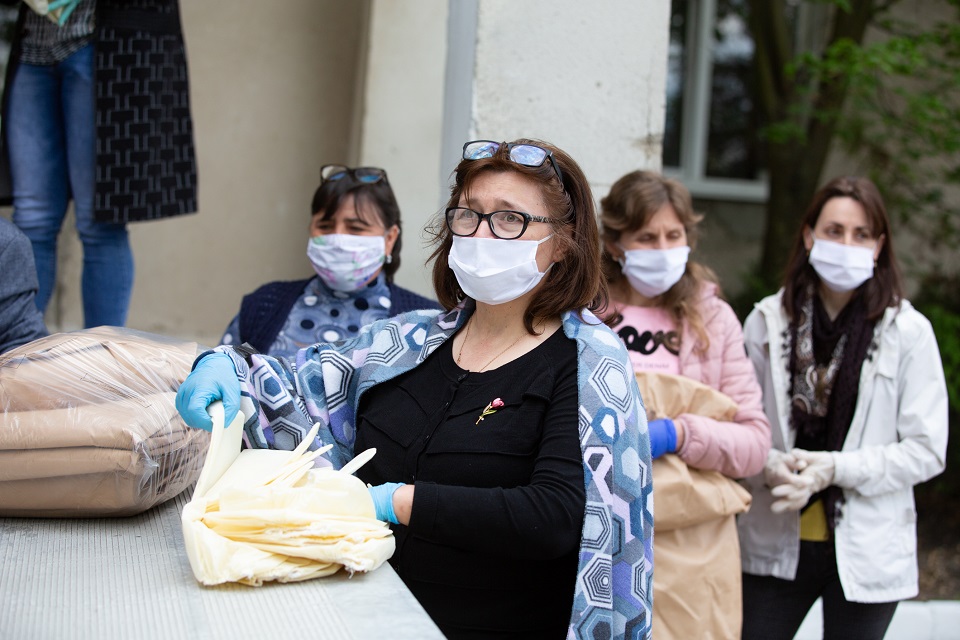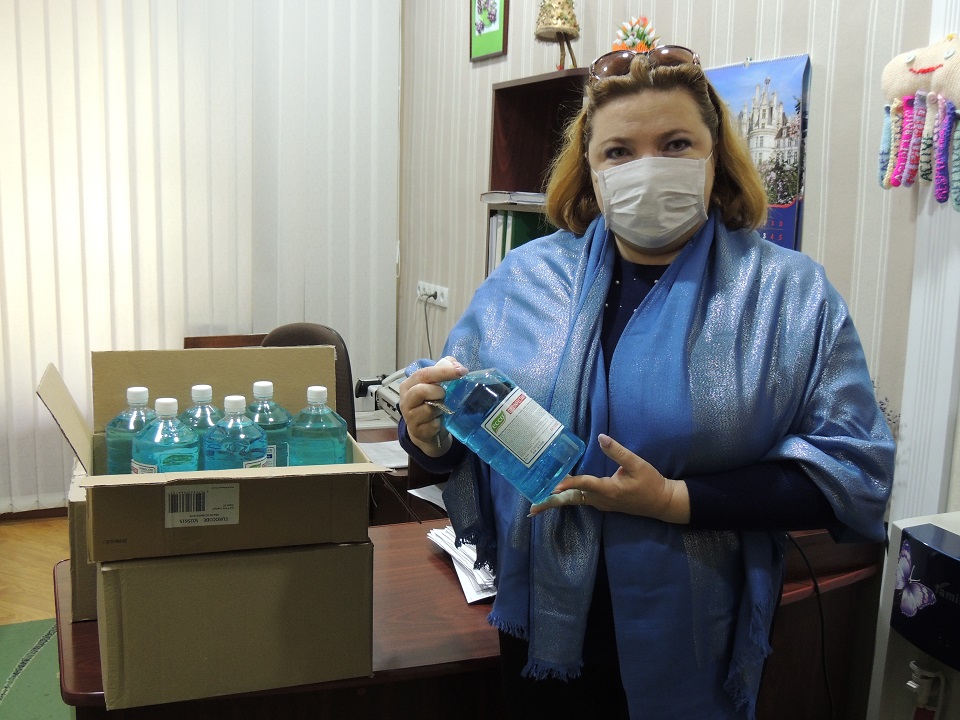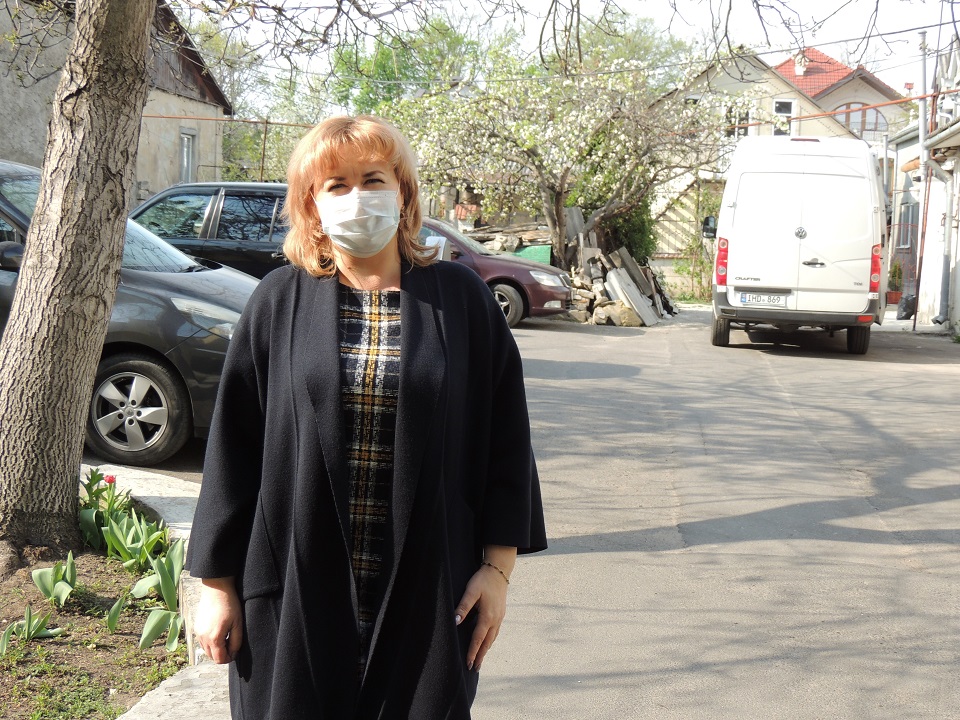Social workers on the front line of COVID-19 response in Moldova
Date:

Regardless of the social, political or health situation, notwithstanding quarantine, the social assistance system must be functional at any time. Social workers and assistants need to be able to fulfill their roles of supporting people in distress, visiting families and people with disabilities and helping all of them to cope with their varied obstacles. Might it be financial, social or emotional problems that evolve due to unemployment but as well as coping with the increase of domestic violence and helping affected women. As the social workers are highly exposed to risk factors in times of pandemic, the provision of proper equipment to front-line responders is crucial. In these hard times for the entire world, especially for the front-line responders, UN Women Moldova, together with Sweden, are supporting current efforts by providing personal protection equipment to social assistance staff. Enabling them to respond efficiently and safely to the COVID-19 outbreak.
According to official statistics, 80% of the staff in the health and social areas in the Republic of Moldova are women. In April 2020, upon the appeal of the Ministry of Health, Labour and Social Protection, UN Women Moldova and Sweden provided two lots of personal protection equipment for 3,279 social assistance staff across 36 regions of the Republic of Moldova. The total value of the assistance provided in the fight against the COVID-19 pandemic via UN Women Moldova, with financial support by Sweden, amounts to USD 215 thousand.

Lucia Caciuc, the Acting Head of the Chisinau Municipal Children's Rights Protection Division, described the experience that her mostly-women team is going through:
"Life proved that women are fighters, and in these times of quarantine we – the women – have to reconfirm it. More than 90% of staff in the child protection system are women. We are struggling with the same problems like anybody else right now. As regards the Chilndren’s Rights Protection Division, I’d like to reassure you that we are fine, we are working, we are coping with challenges and we are continuing to answer calls. We’re trying to do more work from home, but a small group of people are out there to make sure the sector divisions remain operational.
Just like doctors, some of our colleagues are at the front lines. It’s those who work in placement centres, because children who stay there cannot go home, as they have no parents waiting for them. For that reason, I’d like to thank our front-line staff for their dedication and self-giving and for being there with those children, catering for them, because they experience certain frustrations and challenges too. Our children are special. Life has put them through many challenges until they reached us. They need plenty of love and affection. What my colleagues are doing is treating them with the love and positive attitude they need. Just like parents, we are next to them when they are doing their homework, we cook, make up menus, tidy up. This difficult time will come to an end, but children need to have a childhood as it ought to be, and we – the grown-ups – have the obligation to give it to them".

Tatiana Bucearschi, the Head of Division-General for Social Assistance and Health of Chisinau Municipality, underscored how important the contribution of social assistance staff is in responding to the COVID-19 pandemic:
"Obviously, the profession of social worker and social assistant is hugely important, and I believe that right now they are the invisible people that do a huge amount of work for the society, including for socially vulnerable people, such as the elderly, victims of domestic violence, people with disabilities. However, nobody really talks about them and this makes me feel sorry about it. I would like our society to understand that we must thank social workers and assistants who often do not manage to give enough attention to their own families, as they are busy helping out people having it worse than us.
In this period of quarantine, I’d like our society to understand that the messages of ‘stay at home’, ‘keep the social distance and observe hygiene’ are very important. If people who have to stay at home, do this, it will make social workers’ and social assistants’ job easier. They must also understand that even staying at home they still can benefit from social services. We also work via electronic messages, by phone, and if it is necessary to extend the provision of certain social benefits – we do it".